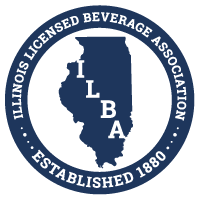Some question why video gambling tax increase should benefit Chicago

June 6, 2024
Cathy Sagle
(The Center Square) – Video gambling is a huge cash cow for the state of Illinois and Democratic lawmakers want a bigger slice of the pie for Chicago.
A late addition to the $53.1 billion state budget that Gov. J.B. Pritzker is considering would raise the tax on the industry to 35%. The Pritzker administration estimated that the tax hike would generate an additional $35 million next fiscal year.
Springfield Mayor Misty Buscher said she recently met with the Illinois Licensed Beverage Association, which voiced concerns about more taxes on small businesses.
“With the minimum wage going up and the Paid Leave for All Workers Act, there have been a lot of additional expenses on small business, so they were very concerned about their revenues,” Buscher said at an unrelated news conference in Springfield this week.
Over 45,000 video gaming terminals (VGT) were in operation in Illinois at the end of last year. Springfield has more video gaming terminals than any other city in the state, with nearly 140 businesses offering the machines.
Chicago’s City Council has maintained its ban on VGTs since the state legalized the gaming machines for businesses holding liquor licenses in 2012.
During debate of the state budget last week, state Rep. Jeff Keicher, R-Sycamore, noted that funds from video gaming downstate are funneled to Chicago.
“All of these VGT revenues that are being raised outside the city of Chicago seem to be going and supporting significant projects in the 13th Ward, in the 26th Ward, Chicago Public Schools,” said Keicher.
Keicher said imagine the pot of money for capital projects in Chicago would enter the VGT world. A measure to allow video gaming terminals in the Windy City stalled in the Illinois General Assembly before lawmakers adjourned for the summer.
Video gaming isn’t the only part of the industry the state wants a bigger cut of. Also included in the budget legislators approved is a tax hike on sportsbook operators. The original plan would have increased the tax from 15% to 35%. A new tiered plan would tax sportsbook operators at 20% if their earnings are below $30 million, but 40% if their earnings are above $200 million.
Sports betting companies said if signed into law, higher taxes would mean worse odds and fewer promotions for users. The companies also warn the tax hike may drive all but the top three sportsbooks out of Illinois.
